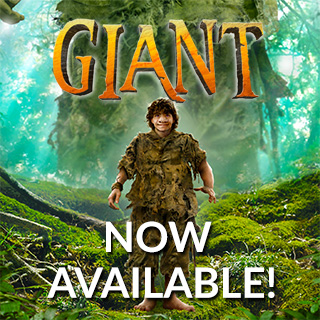Interview with T. A. Barron
Erik Sofje: How does your work address environmental issues such as conservation and global warming?
T. A. Barron: Environmental themes flow through all my books. You’ll find this whether you read The Great Tree of Avalon, which is an eco-fable about a complex and wondrous mythic world that is pushed to the brink of destruction by human greed and arrogance; or The Lost Years of Merlin, which tells the lost story of the wizard Merlin’s youth—when his greatest teacher was Nature; or The Ancient One, which centers on a great redwood tree that is also a time tunnel back to the days when Native Americans lived sustainably in that place, before aggressive modern-day logging.
Through my books, I try to wrestle with the difficult choices that we humans must make if we are to continue living good lives on this planet. I portray the terrible consequences of ignoring environmental issues—while always retaining hope that we can do what it takes to survive, not just physically but also spiritually.
Erik Sofje: What do you think of how the recent film, The Day After Tomorrow, addressed global warming and related climatological concerns?
T. A. Barron: Any film or book that weaves environmental concerns into its plot is helpful. It gets people thinking, arguing, and wondering—all of which helps set the stage for honest, scientifically sound discussion of our situation. We are, after all, passengers on this lonely little jewel of a planet, a bright spot in all the vastness of space. But we need the power of stories to make us rise above our habitual routines and recognize our peril—and our opportunity.
That is why I weave into all my plots some of the essential inspiration and sustenance we gain from the natural world. It may be the stunning perspective of geologic time, or the overwhelming scale of Nature that enables us to feel both very small and very large at once. Or it may be Nature’s lessons in long-term asset management—principles of sustainable success which were very similar to those I witnessed during my years in the venture capital business.
Erik Sofje: Do you think the film helped the overall cause of environmental activists?
T. A. Barron: Discussion and debate are always helpful. The more people focus on the realities of our fragile existence on planet Earth, the better our chances to modify our behavior so that we can preserve the planet—and also ourselves.
Erik Sofje: Since the ’60s, environmentally-themed science fiction has presented various theories and possibilities for what the future might bring. Have any SF books and films struck you as particularly effective at increasing public awareness of environmental problems?
T. A. Barron: Until the Bush administration came into power, and adopted an arrogant posture of “ignore the problem,” we were definitely making progress in improved public awareness. The bottom line is this: Even as bountiful as the Earth has been for our species, we cannot simply devour its resources thoughtlessly. We need the Earth’s biological diversity, its air and water and trees, as well as its gifts of inspiration and solitude. To survive in our bodies as well as our hearts, we need to act as responsible, long-term stewards.
Erik Sofje: Does your work share any similarities with that of Miyazaki, insofar as you’re creating a fantasy world to discuss the environment?
T. A. Barron: Yes: His work, like mine, looks at our real world through a bent mirror. By bending the angle of the image, we can highlight aspects of our environmental situation, while diminishing others. The result, I hope, is a good old rip-roaring story—with something deeper underneath that leaves people thinking.
Erik Sofje: What is your take on Michael Crichton’s latest book, State of Fear, and how it may (or may not) affect public opinion?
T. A. Barron: As I said earlier, any book or film that promotes public discussion of environmental issues is a good thing. Having said that, I am convinced that the overwhelming scientific evidence makes it clear that global warming is happening and that we humans are part of the problem. Whether we are also going to be part of the solution is up to us.

